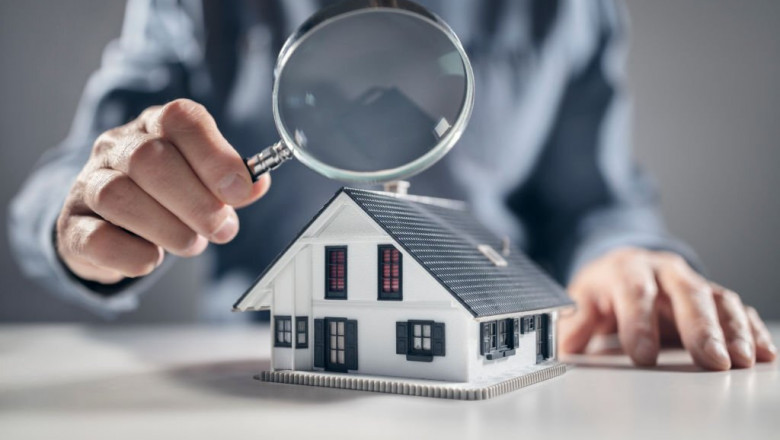views
When you're in the market for a new home in Alamo City, one of the most crucial steps in your home-buying journey is getting a thorough home inspection. As a San Antonio resident, I've learned that choosing the right home inspector can make all the difference between making an informed investment and facing unexpected repairs. Let's dive into everything you need to know about home inspection companies in San Antonio and how to choose the best one for your needs.
Why a Professional Home Inspection Matters
Think of a home inspection as a comprehensive physical exam for your potential new home. Just like you wouldn't skip a medical check-up before making important health decisions, you shouldn't skip a home inspection before making one of the biggest investments of your life.
A professional inspection typically takes 2-4 hours and covers everything from the foundation to the roof. The inspector will examine structural components, electrical systems, plumbing, HVAC, and more. However, understanding what these findings mean for you as a homeowner matters.
What to Expect from a Quality Home Inspection
The Inspection Process
When you work with reputable home inspection companies in San Antonio, you can expect a systematic approach to examining your potential home. A thorough inspection typically includes:
Foundation and Structural Elements
Walking into a home with foundation issues in Texas can be particularly concerning. Your inspector will look for the following:
-
Cracks in walls or ceilings
-
Uneven floors
-
Doors that don't close properly
-
Signs of water damage or poor drainage
Understanding these findings is crucial. For example, a hairline crack might be cosmetic, while a diagonal crack could indicate serious foundation movement that could cost tens of thousands to repair.
Electrical Systems
In older San Antonio homes, electrical systems can be a particular concern. Your inspector will check the following:
-
The electrical panel's condition and capacity
-
Wiring types and safety
-
Outlet functionality and GFCI protection
-
Potential fire hazards
If your inspector finds aluminum wiring or an outdated electrical panel, this could mean significant upgrades are needed to ensure safety and meet current codes.
Plumbing Systems
Given our local water quality and aging infrastructure, plumbing inspection is crucial. They'll examine:
-
Water pressure and flow
-
Pipe materials and condition
-
Water heater functionality
-
Signs of leaks or water damage
For instance, finding galvanized pipes in an older home could mean repiping might be necessary within the next few years – a significant expense worth considering in your purchase decision.
HVAC Systems
HVAC system inspection is essential in San Antonio's intense summer heat. Your inspector will evaluate the following:
-
Air conditioning efficiency
-
Heating system functionality
-
Ductwork condition
-
System age and maintenance history
An aging HVAC system might work fine during inspection but could be on its last legs. Understanding its condition helps you plan for potential replacement costs.
Roof and Exterior
Our local weather can be harsh on roofs. A quality inspection includes:
-
Shingle condition and age
-
Flashing around chimneys and vents
-
Gutter systems
-
Exterior wall condition
A roof nearing the end of its life might not be leaking yet, but a replacement could be necessary within a few years – a significant expense to factor into your decision.
How to Choose the Right Inspector
Qualifications to Look For
When researching home inspection companies in San Antonio, consider these critical factors:
Licensing and Certification
Texas requires home inspectors to be licensed through the Texas Real Estate Commission (TREC). Look for inspectors who:
-
Hold current TREC licensing
-
Have additional certifications from recognized organizations
-
Maintain regular continuing education
-
Carry proper insurance coverage
Experience Matters
While licensing is crucial, practical experience in our local market adds invaluable insight. An experienced inspector will:
-
Understand common issues in San Antonio homes
-
Know local building codes and requirements
-
Recognize regional construction practices
-
Have extensive experience with various home types and ages
The Inspection Report
A professional inspection report should be:
-
Detailed and comprehensive
-
Easy to understand
-
Supported with photos
-
Delivered promptly (usually within 24-48 hours)
The report should clearly explain what the issues are:
-
Safety concerns requiring immediate attention
-
Maintenance issues to be addressed soon
-
Minor issues to monitor
-
Improvements to consider for the future
Understanding Inspection Findings
Common Issues in San Antonio Homes
Based on our local climate and construction practices, specific issues frequently arise:
Foundation Concerns
Our expansive clay soils can cause foundation movement. Understanding the difference between normal settling and problematic movement is crucial. Your inspector should explain:
-
The severity of any foundation issues
-
Potential causes
-
Recommended remediation steps
-
Estimated repair costs
Moisture-Related Problems
Our humidity and occasional heavy rains can lead to:
-
Mold growth in attics or walls
-
Wood rot in exterior trim
-
Poor drainage issues
-
Ceiling stains from roof leaks
Understanding these findings helps you:
-
Prioritize repairs
-
Negotiate with sellers
-
Plan for future maintenance
-
Make an informed purchase decision
Cost Considerations
Inspection Fees
A quality home inspection typically costs between $300-$600, depending on:
-
Home size
-
Age of the property
-
Additional services needed (like pool or septic inspections)
-
Report delivery timeframe
Value vs. Cost
While it might be tempting to choose the lowest-priced inspector, consider:
-
The potential cost of missed issues
-
The value of detailed reporting
-
The importance of experience
-
The benefit of thorough communication
Making the Most of Your Inspection
Before the Inspection
Prepare by:
-
Researching the home's age and history
-
Making a list of specific concerns
-
Ensuring all areas are accessible
-
Planning to attend the inspection if possible
During the Inspection
Take advantage of this learning opportunity:
-
Ask questions about the findings
-
Take your notes and photos
-
Learn about maintenance requirements
-






















Comments
0 comment